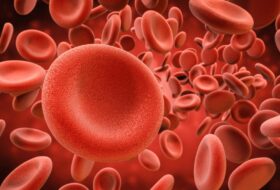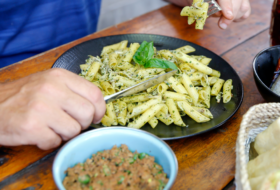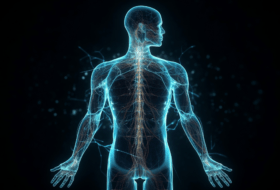Your ability to gain muscle mass is influenced by many factors. It comes down to genetics (thanks mum and dad), age, training programme and history, as well as what you eat. In this video Fuel My Potential Cofounder and Performance Dietitian Rebecca Jackson lets you in on her key nutrition considerations for gaining muscle mass.
Gaining muscle mass is a performance or aesthetic goal for many athletes. Unfortunately the desire for quick results often leads to unrealistic targets. And trying to bulk up too quickly can do more harm than good. To achieve the best results you need to be realistic. Smaller gradual gains in muscle mass is the best way to go.
Now, when it comes to gaining muscle mass there are two fundamental things we need to have dialed in before worrying about nutrition. The first is your training programme. If your muscles don’t get the right amount of stress or recovery then they will not adapt. They second is sleep. Majority of our growth hormone gets released when we are asleep. As the name gives away growth hormone is important for growing new muscle cells.
Once we have our training and sleep, it is time to start thinking about how and what we eat. Below are five nutrition tips from the Fuel My Potential team for gaining muscle mass.
1. Eat Sufficient Energy And Carbohydrate
Your muscles need fuel to grow. Therefore to gain muscle mass extra energy is needed. How much varies person to person but between 1500 to 2000 kilojoules (around 350 to 500 calories) a day is a good starting point. A gradual increase in energy intake is best to avoid unwanted gains in body fat.
Do not treat this as an opportunity to overindulge on junk foods though. Instead choose nutritious energy dense foods to help meet your higher fueling needs. Think nuts, seeds, avocado, oily fish, olive oil, dried fruit and dairy products. If you struggle with eating large volumes of food try include some high energy liquid options like our Nutty Banana Smoothie
Eating enough carbohydrate is also important for gaining muscle mass. Carbs are your muscles preferred fuel source for the training that will stimulate muscle growth. Carbs are also required during recovery to reduce muscle protein breakdown and prevent protein being used as fuel. Meals and snacks should mostly be based on quality carbohydrate foods such as grains (oats, rice, quinoa, pasta, buckwheat etc.), starchy vegetables (potato, kumara, parsnip etc), fruit, legumes and dairy.
2. Time Your Protein Intake Well
There is more to protein than the total amount that you eat in a day. To provide the best support for muscle growth aim to spread your protein intake out evenly across all meals and snacks. Quality sources of protein include lean meats, poultry, fish, eggs, legumes, nuts, nut butters, seeds and dairy products.
3. Eat Frequently Across The Day
A missed meal or snack could be as detrimental as a missed training session when it comes to gaining muscle mass. Aim to have a meal or snack roughly every 3 hours. Not only does this help with protein supply but it also allows you to increase your total food (and energy) intake without feeling stuffed. Being organised is key to nailing this out so get meal planning. To help with this check out our recipe section for some inspiration as well as the snack ideas below.
4. Fuel Well Around Your Training Sessions
Before and after your training sessions is the first place I recommend adding in extra kilojoules (or calories) as this is typically where you are using the most energy in your day. Think of it like sandwiching your training session with food. Fuel the session and your recovery with a carbohydrate and protein rich snack 1 to 2 hours before and again within 30 minutes of finishing training. When trying to gain muscle that “window of opportunity” we often hear about for recovery is really important. This is the initial period after exercise where your muscles are primed to take up nutrients that stimulate muscle repair and growth.
Protein and Carbohydrate Snacks
- Fruit smoothie
- Lean meat or egg sandwich
- Salmon, tuna or chicken sushi
- Can of fish or chicken and grainy crackers
- Greek yoghurt and fruit
- Fruit & nut mix
- Glass of milk and nut butter on toast
- Cottage cheese on rice cake
5. Supplement Don’t Substitute
There are hoards of supplements that claim to build muscle mass, but very few actually stack up when it comes to the research. Protein powder, creatine, omega 3 supplements and beta-alanine may offer some benefit when trying to improve muscle mass and strength. Think of these as the sprinkles on the icing on the cake though. The last piece to add to the puzzle when an athlete has reached their genetic maturity, is doing the right training and following a well planned diet.





